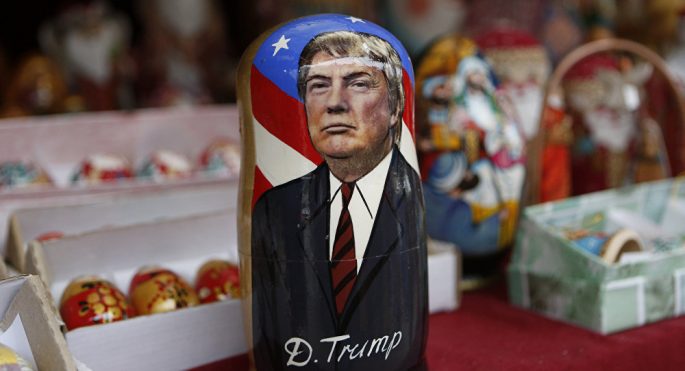Russo-American relations in the new Trump era
Unpredictability is all that can be predicted for Russo-American relations at this point.

Timothy Frye
There are several reasons for this, from both the American and the Russian points of view. America first.
Firstly, the President-elect has never held public office in his life. Never. His lack of political experience makes it difficult to predict his reactions to information and situations he has not previously encountered. For him everything is a novelty, and, moreover, it appears that he is easily swayed by advisers. A person with no very firm political position on many issues will be a difficult partner for Russia.
Secondly, Trump’s political promises are often formulated in very vague terms. When he was asked if he recognised post-annexation Crimea as Russian territory, he replied “We will give this matter our consideration.” This answer can be interpreted in two ways: it would seem to contain a desire to recognise the annexation as lawful, but without any assurances. Like any experienced negotiator, Trump always leaves himself the possibility of denying any promise he might have appeared to make.
As to his pre-election promises, those relating to Russia seem more consistent than the others. But in his relatively recent book Time to Get Tough (2011) Trump’s stance on Russia was much more robust, creating the impression that he can adopt any position, which suits him at any particular time.
Thirdly, Trump’s team displays an apparent lack of unity with regard to Russia. Vice- President-elect Pence’s position is much tougher than that of his boss. At the same time, Trump’s National Security Adviser [retired general Mike Flynn] has spoken highly of Crimea, and the fact that Trump is considering a range of candidates for the post of Secretary of State – from the Russophile Dana Rohrabacher [Republican congressman from California] to the hawkish John Bolton [ex US Ambassador to the UN] – reflects an absence of any clear-cut direction. The final upshot of all this is that whoever gets to determine policies vis à vis Russia will be restricted in his powers of decision-making, and there will be little chance of a consistent policy line.
Fourthly, any ideas Trump has managed to define about the direction any cooperation with Russia might take will provoke very considerable opposition from Congress. There is not much that brings together Democrats, Republicans in either the House of Representatives or the Senate, but they are united in their intention to toe a tough anti-Russian line. Moreover, leading Senators engaged in foreign policy issues, such as John McCain and Lindsey Graham, have already warned the White House not to ease pressure on Russia unless there are very evident concessions from the Kremlin.
In Russia, meanwhile, confusion reigns. The logic of decisions taken in the past few years has become less transparent: power is concentrated in the hands of a small group of people, which makes it extremely difficult for foreign observers to interpret Kremlin policies. There is an obvious struggle going on inside the Russian government, as can be seen from the intrigues surrounding the Rosneft purchase of a controlling stake in Bashneft, and the arrest of Economic Development Minister Ulyukayev on charges of bribe-taking. And this is all in the context of the upcoming presidential election and a hopelessly stagnating economy.
If we consider the complex and confused issues of international affairs which Presidents Trump and Putin are going to have to address within the next few months, we find that yet more questions arise: the many-sided conflict in Syria which no one can fully understand, tension in Eastern Ukraine, Europe’s uncertain future, the cyber warfare which has recently flared up…
The only future prospect more dangerous than predictably bad relations is unpredictably bad relations. When the parties have such imperfect mutual understanding, there is a significantly increased risk of faulty judgments. One has only to look at Trump’s ambivalent statements on the US-NATO relationship. The uncertainty of guarantees for the (European) allies could easily provoke an escalation of military confrontation and unpredictable reactions from the countries of the region, which are making haste to arm. Another disagreement between Russia and NATO member Turkey, for instance, cannot be ruled out. Chance military clashes between American and Russian troops in Syria or the Mediterranean are also quite likely. If Russo-American relations are both bad and unpredictable, it will be extremely difficult to address all these potential problems.
We have embarked on dangerous times. Surprises are inescapable.
This article was first published in New Times



